Jhargram people skipping sleep to protect migratory birds - GetBengal story
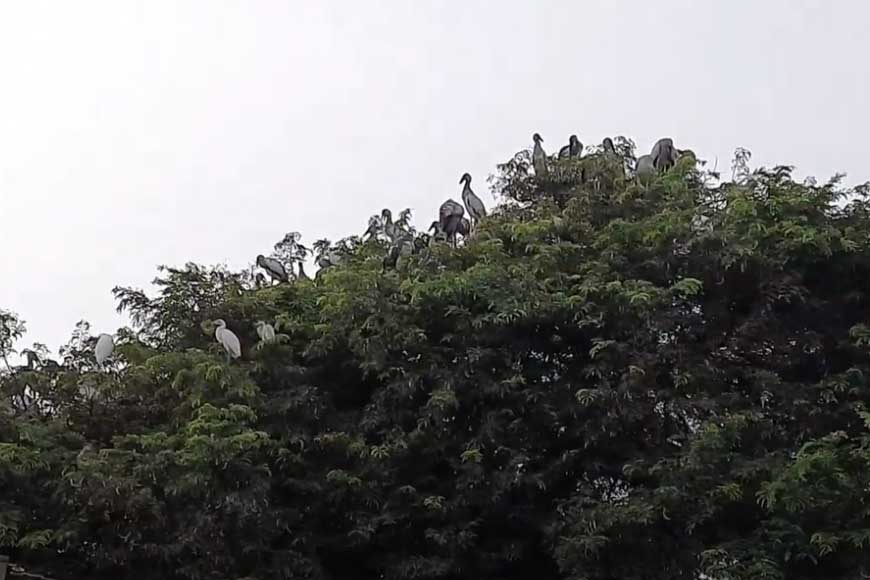
At the end of every autumn and the onset of the long-awaited winters, many migratory birds flock to different districts of Bengal from far-off lands. The villages of Bengal get filled with them and their calls mesmerize the people around. They attract tourists who visit these areas, mostly birdwatchers who hope to catch a glimpse of them and capture some pictures on their DSLR cameras. But there is also a flip side to this story and how our feathered friends are in danger.
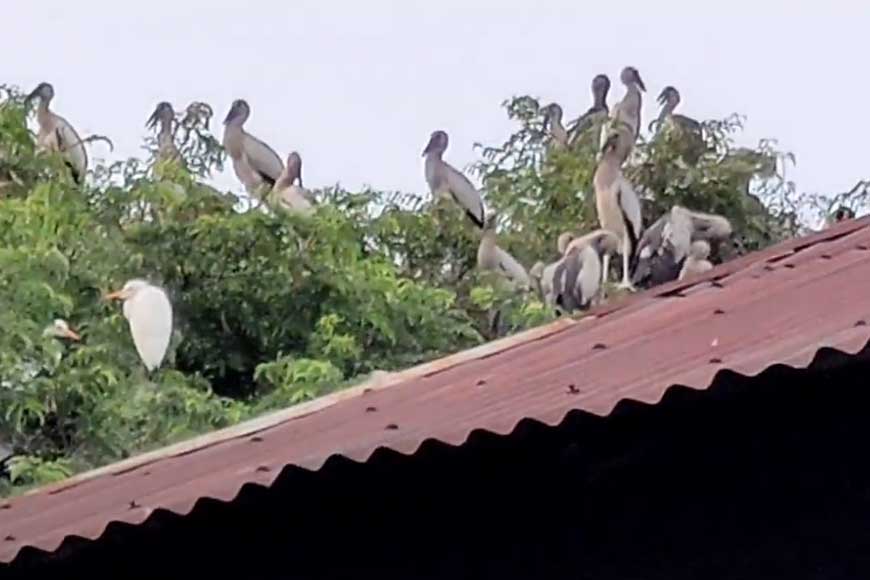
Such migratory birds often fall prey to poachers who roam around the forests and try to catch them and sell them or their eggs. For many years the Kendua area of the Jambani range of Jhargram district has been a safe haven for such migratory birds. Kendua is a small village and a birding hotspot situated on the Jhargram-Chilkigarh road at a distance of 9 km from the Jhargram town. Migratory birds visit Kendua in the month of May announcing the onset of monsoon and leave by November, they hatch their eggs and fly away. A walk through the Kendua village is more like a walk through the woods in a dense forest. The diversification of birds along with the change of nature from time to time is mesmerizing. For a breathtaking experience in the lap of nature, Kendua village is a must-visit for nature lovers. Around 9 species of birds have been sighted this year in and around Kendua; they include the Great Egret, Intermediate Egret, Little Egret, Cattle Egret, Indian Pond-Heron, Indian Golden Oriole, Black-hooded Oriole, and Rufous Treepie.
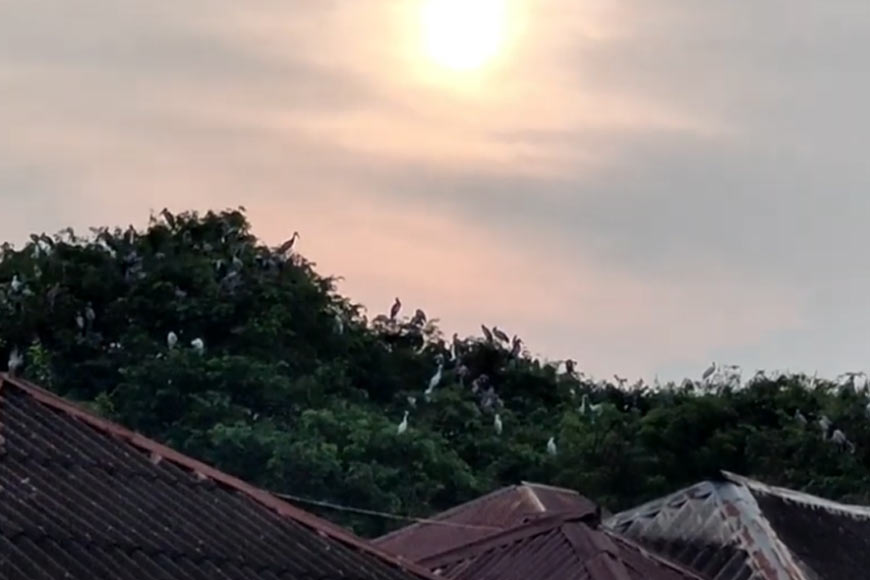
The villagers take care of the forest and they are against the poachers who sneak into the forests. The villagers this year have repeatedly informed the forest department to look into this danger. Accordingly, the forest department has arranged a special guard in the Kendua area under the Jambani forest division. Papon Mohanto, an officer of Jambani Forest Range, called a meeting according to the demand of the villagers and arranged a night watchguard in the area. The Forest Protection Committee took shape at the initiative of the villagers, both the committee members and forest workers will work together and keep a watch at night.
In the Kendua area, inside the premises of Jatin Mahata’s house, there are big tamarind trees in which a number of migratory birds build their nests. For many years the villagers have tried to keep the place safe for the birds on their own initiative but the forest personnel will now provide a helping hand in keeping the poachers out of such areas. The forest rangers have been given search lights as well to be able to see better. Birds can be poached by using illegal calling devices, but the main methods to kill birds are shooting, netting and gluing. In many instances, the poachers attach very thin threads from one branch to another. The birds often get entangled in those threads and fall into the trap of the poachers who either kill them or put them into cages to sell them.
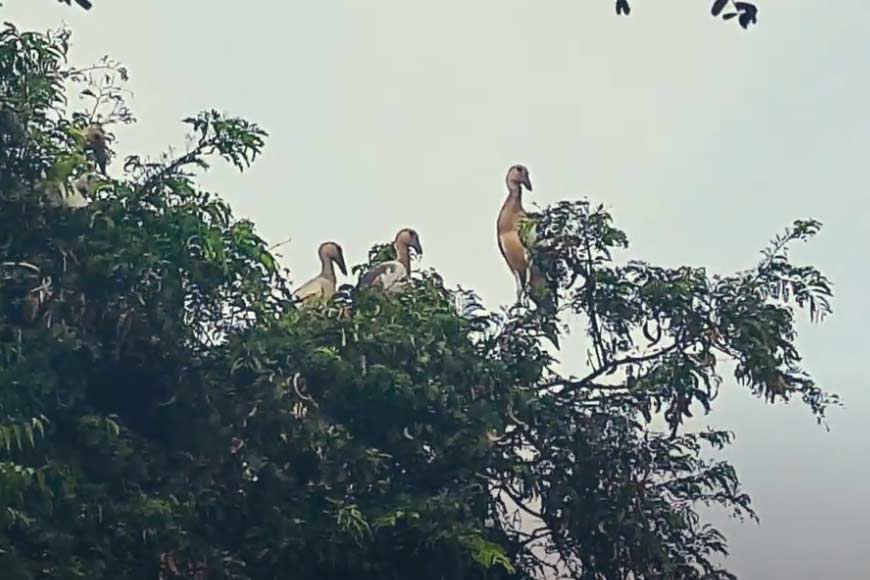
Soumendra Mohan Ghosh, an environmentalist and green technologist, said, “Most birds usually migrate from unfavourable locations to some favourable places which have suitable conditions along with sufficient food and water resources and are also safe. The majority of birds migrate during the breeding season and others migrate for food resources and because of the change in seasons. No person has the right to disturb, destroy, or take the nests of migratory birds in their sanctuary. Guarding the migratory birds from predators in forests, Eco Sensitive zones, or biodiversity hot spots is essential so that they can comfortably exist in their natural habitat, lay eggs and return to their own places. The step taken by the government is very necessary and important to maintain ecological balance and to prevent the poachers from killing, capturing, selling and trading these birds.”
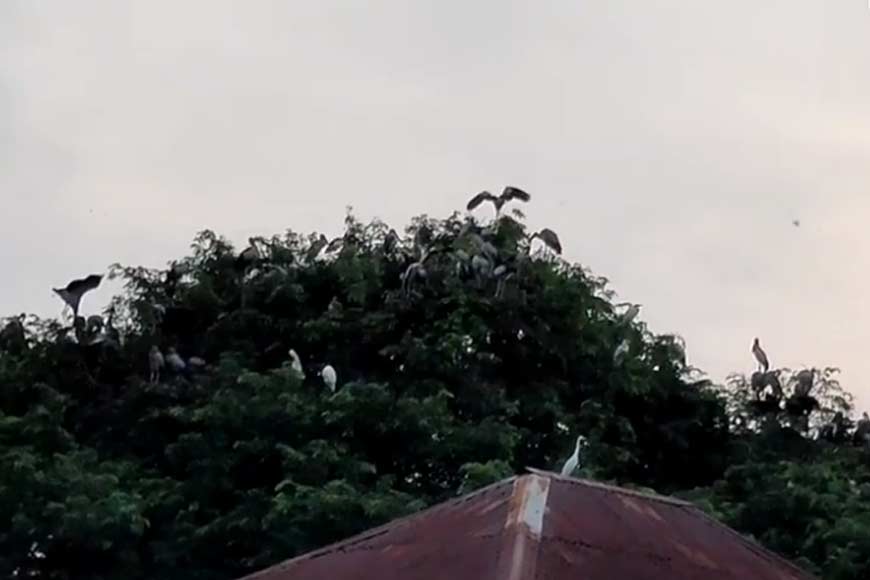
Chitrak Pramanik, a Nature and Wildlife conservationist, said, “In Jhargram, 7 to 8 forest rangers are being kept in rotation to prevent the poachers from entering the forest. Everyone’s duty is to protect the migratory birds because they mostly come to breed and then return to their land. Some migratory birds come to protect themselves from the harsh conditions of the Northern countries. These migratory birds are our guests and no one should kill them to merely profit from it, it is a punishable offense. In my locality, Rupnarayan, or in Santragachi Jheel many migratory birds reside for a few months. The locals have a duty and the initiative taken by the forest department is a positive one.”
Hope Jhargram this year will set an example to the whole of Bengal and India in protecting our feathered friends and helping them in the perpetuation of their race.










